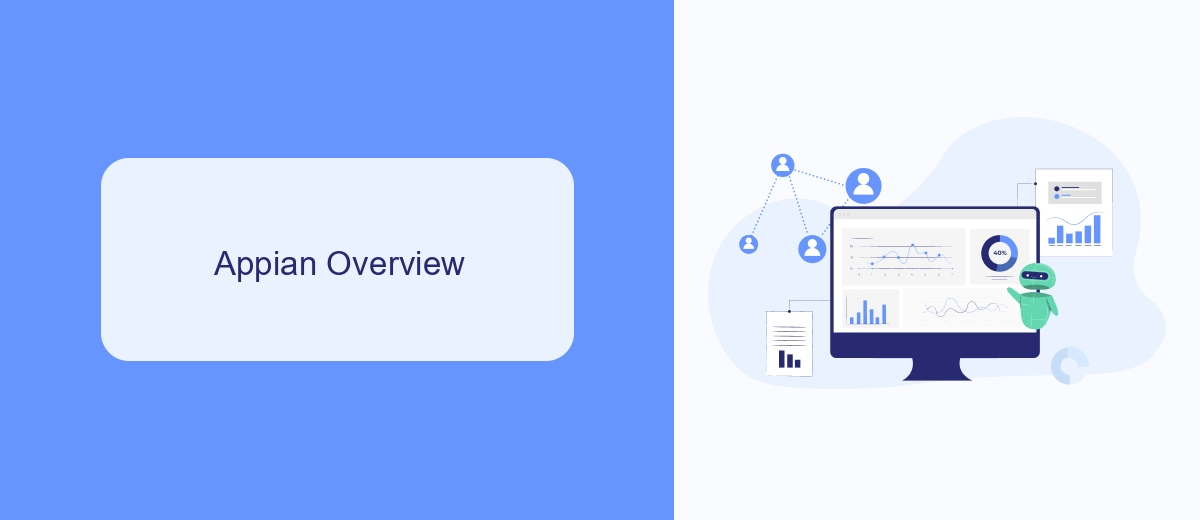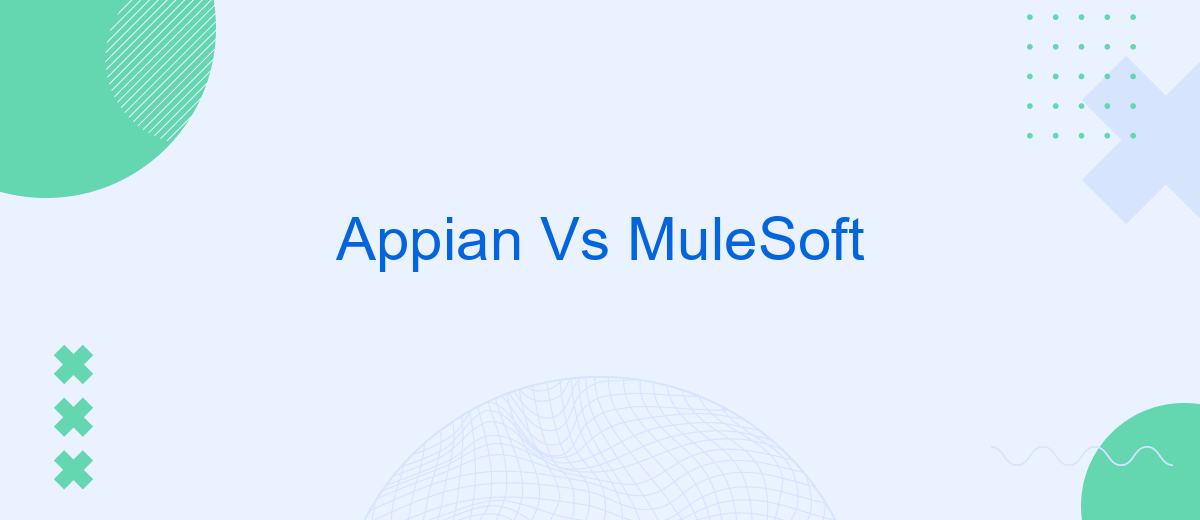In the rapidly evolving landscape of enterprise technology, choosing the right integration and automation platform is crucial for business success. This article delves into a detailed comparison between Appian and MuleSoft, two leading platforms that offer robust solutions for process automation and integration. By examining their features, capabilities, and use cases, we aim to help organizations make an informed decision tailored to their specific needs.
Introduction
In today's digital landscape, businesses are increasingly relying on integration platforms to streamline their operations and enhance productivity. Appian and MuleSoft are two prominent players in this domain, each offering unique capabilities to meet diverse integration needs. Understanding the strengths and limitations of each platform is crucial for organizations looking to optimize their workflows and drive innovation.
- Appian: Known for its low-code automation capabilities, Appian enables rapid application development and process automation.
- MuleSoft: Specializes in API-led connectivity, allowing businesses to integrate various systems and applications seamlessly.
- SaveMyLeads: Provides an easy-to-use interface for setting up integrations without extensive coding knowledge, making it a valuable tool for non-technical users.
This article will delve into the features, benefits, and use cases of Appian and MuleSoft, helping you make an informed decision on which platform best suits your business needs. Whether you are looking to automate processes or connect disparate systems, understanding these platforms will empower you to choose the right solution for your integration challenges.
Appian Overview

Appian is a leading low-code automation platform that enables organizations to rapidly develop powerful and unique applications. By combining process automation, artificial intelligence, and machine learning, Appian helps businesses streamline their operations and improve efficiency. The platform is designed to be user-friendly, allowing both technical and non-technical users to create applications through a visual interface, thus reducing the development time and cost.
One of the standout features of Appian is its robust integration capabilities. It supports seamless integration with various third-party systems and services, including SaveMyLeads, which simplifies the process of connecting different applications and automating workflows. This ensures that data flows smoothly across different platforms, enhancing overall productivity. Additionally, Appian's security and compliance standards ensure that all integrations are secure and reliable, making it a trusted choice for enterprises looking to modernize their IT infrastructure.
MuleSoft Overview

MuleSoft is a prominent integration platform that enables businesses to connect applications, data, and devices seamlessly. By providing a unified platform for API management, MuleSoft facilitates the creation of application networks, allowing for streamlined communication and data exchange across various systems. This capability is essential for organizations looking to enhance their operational efficiency and agility.
- API-led Connectivity: MuleSoft's approach focuses on reusable APIs, making integrations more scalable and manageable.
- Anypoint Platform: This comprehensive suite includes tools for designing, deploying, and managing APIs and integrations.
- Cloud and On-Premise Support: MuleSoft supports hybrid environments, enabling integrations both in the cloud and on-premises.
- Pre-built Connectors: With a vast library of connectors, MuleSoft simplifies the integration process with popular applications and services.
- Robust Security: MuleSoft ensures secure data transmission and compliance with industry standards.
For businesses seeking to automate their workflows and enhance integration capabilities, MuleSoft offers a robust solution. Additionally, services like SaveMyLeads can further streamline the integration process by automating data transfers between various platforms, ensuring that businesses can focus on their core operations without worrying about manual data handling.
Comparison

When comparing Appian and MuleSoft, it's essential to consider their core functionalities and target use cases. Appian is primarily a low-code automation platform, designed to streamline business processes through easy-to-build applications. MuleSoft, on the other hand, is an integration platform that focuses on connecting various applications, data sources, and APIs to enable seamless data flow across systems.
Both platforms offer robust solutions, but their approaches and strengths differ significantly. Appian excels in rapid application development and workflow automation, making it ideal for businesses looking to enhance productivity with minimal coding effort. MuleSoft shines in its ability to integrate complex systems and provide a unified data layer, which is crucial for organizations with diverse IT ecosystems.
- Appian: Low-code development, workflow automation, user-friendly interface.
- MuleSoft: Comprehensive integration capabilities, API management, extensive connectivity options.
- SaveMyLeads: Simplifies integration setup, automates data transfer between platforms, enhances productivity.
Ultimately, the choice between Appian and MuleSoft depends on your organization's specific needs. If you require rapid application development and process automation, Appian is a strong candidate. Conversely, if your focus is on integrating various systems and managing APIs, MuleSoft is the better option. Additionally, tools like SaveMyLeads can complement both platforms by simplifying integration setups and automating data workflows.
Conclusion
In conclusion, both Appian and MuleSoft offer robust solutions for businesses looking to enhance their integration capabilities. Appian excels in providing a low-code platform that simplifies the development of complex workflows and applications, making it an ideal choice for organizations prioritizing speed and ease of use. On the other hand, MuleSoft stands out with its comprehensive API-led approach, enabling seamless connectivity across a wide range of systems and applications, which is crucial for enterprises with diverse IT landscapes.
Ultimately, the choice between Appian and MuleSoft depends on your specific business needs and technical requirements. For companies seeking to streamline their integration processes with minimal coding, Appian may be the more suitable option. Conversely, for those requiring extensive API management and connectivity, MuleSoft is likely the better fit. Additionally, leveraging tools like SaveMyLeads can further enhance your integration strategy by automating data transfers and ensuring smooth communication between various platforms, thereby maximizing the efficiency and effectiveness of your chosen solution.


FAQ
What are the primary use cases for Appian and MuleSoft?
Can Appian and MuleSoft be used together?
Which platform is better for API management?
Is it possible to automate the integration process between different apps without extensive coding knowledge?
How do I decide whether to use Appian or MuleSoft for my project?
Are you using Facebook Lead Ads? Then you will surely appreciate our service. The SaveMyLeads online connector is a simple and affordable tool that anyone can use to set up integrations for Facebook. Please note that you do not need to code or learn special technologies. Just register on our website and create the necessary integration through the web interface. Connect your advertising account with various services and applications. Integrations are configured in just 5-10 minutes, and in the long run they will save you an impressive amount of time.
